You might've seen a mess in the house and decided it was cleaning day. The best way to build momentum is to start mopping the floor. However, have you wondered what would work best, hot or cold water with the mop? If that's the issue wandering in your mind, we have looked into the topic and found some answers.
It is preferable to use cold water instead of hot water when mopping. The reason is that it does not damage the flooring and it retains floor shine. It also helps in eradicating germs and bacteria. Additionally, cold water saves a lot of electricity and leaves off a cooling effect later after cleaning.
Some people are adamant about using hot water while mopping instead of cold water. They believe that it is indeed a deep cleaning agent and helps to fight off germs faster. On the other hand, others disagree, believe it is a myth, and use cold water instead. We’ll discuss these two below to find out what’s the best option for you.
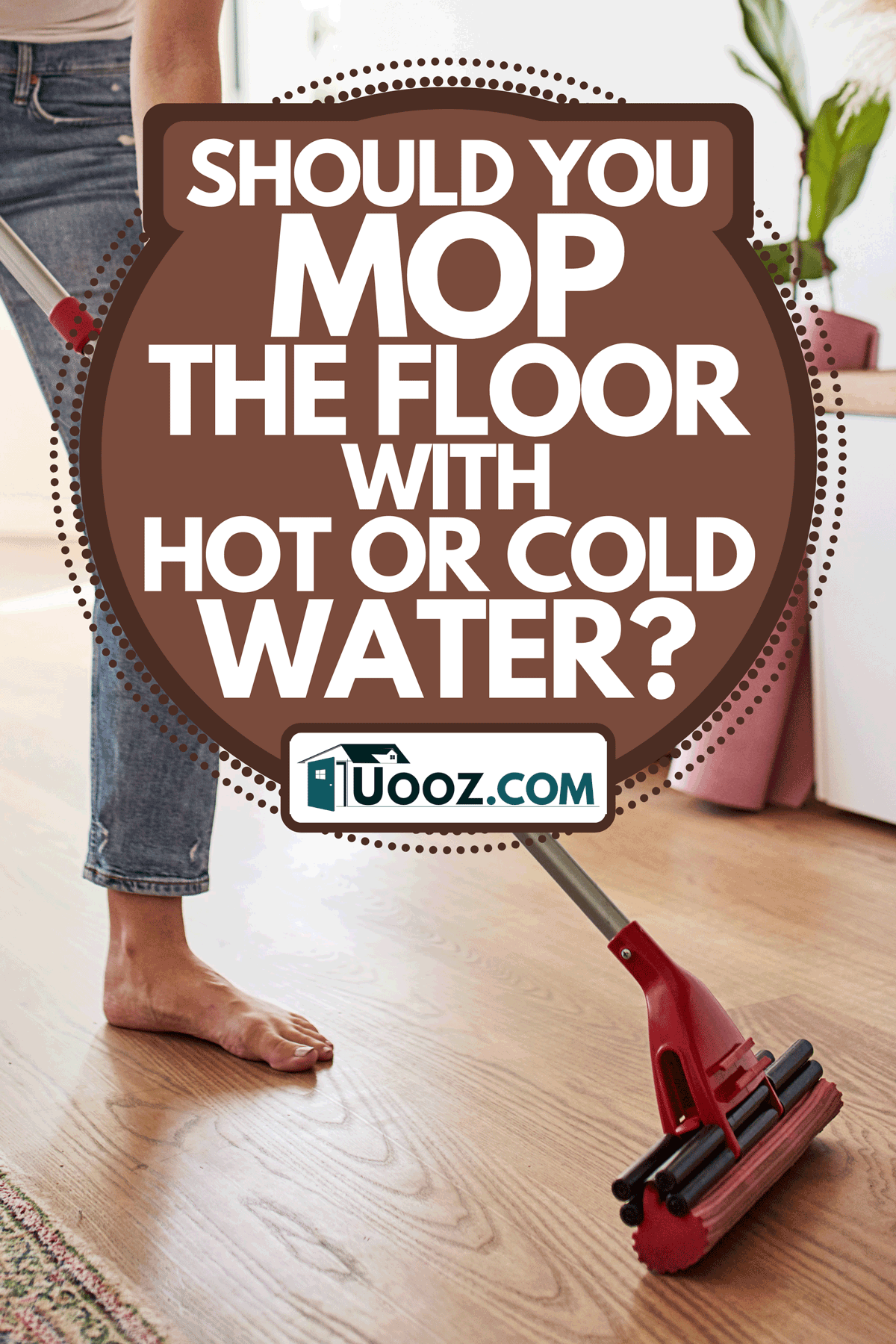
To Be Hot? Or To Be Cold?
Whether to use hot or cold water depends upon your preference and the type of flooring you have in your house. It also relies on your detergent of choice. Some detergents work better with cold water. Other cleaners require hot water to activate.
Lastly, it is up to your preference. The climate can dictate what type of water you will want to use. We recommend using the correct methods to mop your floor. Be careful with the types of cleaners you choose. The lifespan of your flooring is dependent upon the choices you eventually make.
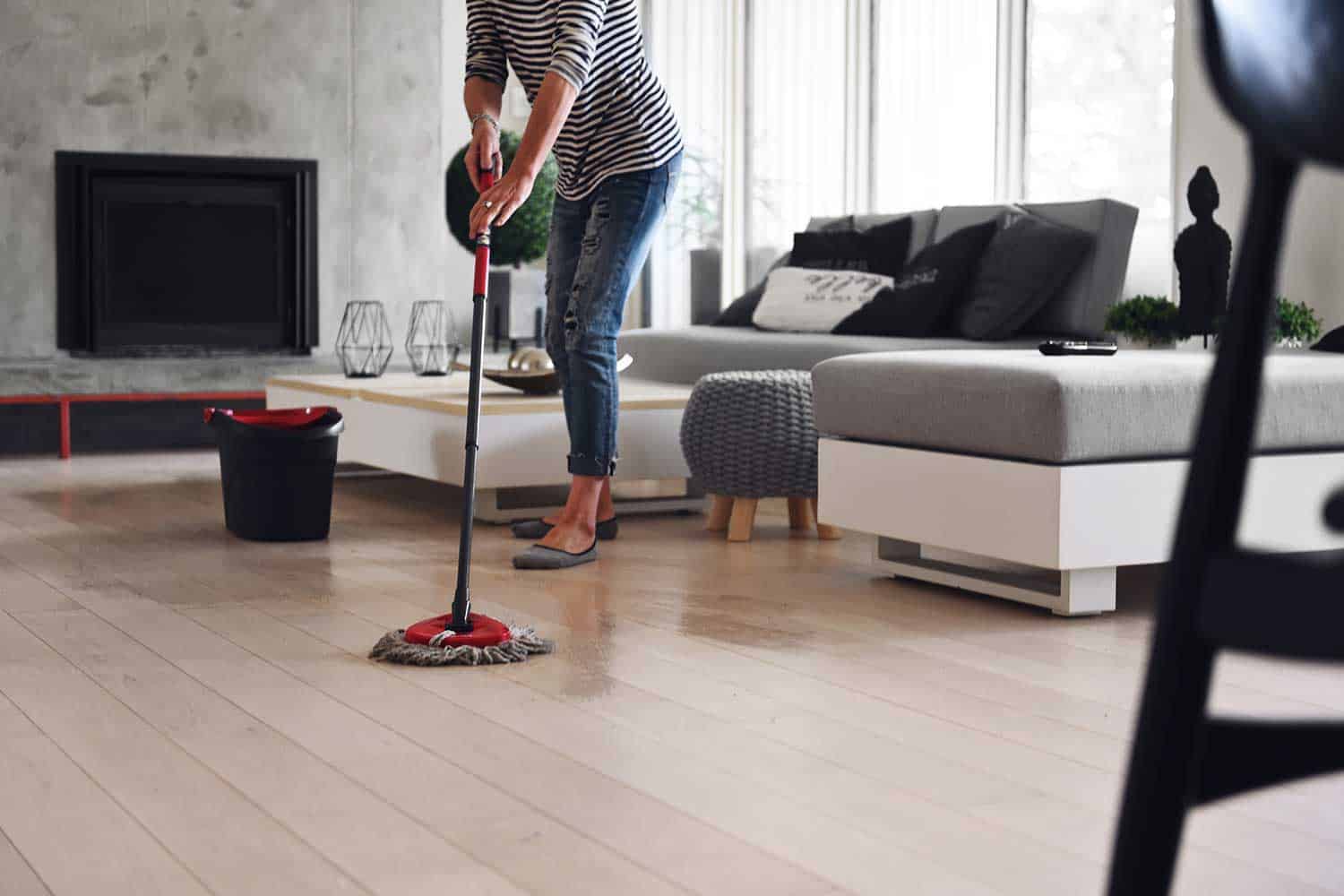
Advantages Of Cleaning With Cold Water
In general, cleaning with cold water is less rough on your floors, except for hardwood flooring. It helps retain its sheen throughout and does not damage the upper latex covering (if there is any). It does not bombard the floor with chemicals and cleaning agents as hot water does. Unlike hot water, it moves more slowly. Slower movement helps to eliminate grime thoroughly.
An emulsified cold water detergent solution helps in separating the soil binders present on the floor, hence breaking up the bacteria chain.
Additionally, science says cold water molecules move more slowly due to low temperature. The constant loss of heat to the surroundings makes it somewhat heavier than hot water. In turn, this affects the cold water’s ability to absorb more detergents and chemicals. Therefore, making them slow but thorough cleaners.
In addition to this, using cold water may also help you save electricity and fuel. Using cold water is more eco-friendly.
Using cold water is best when you live in a colder climate. You'll save energy by not heating water every time you clean. Plus, cold water mopping will work with most floor types. It's great for everyday cleaning. It will surely be a viable solution to scrub off the dust on your floors.
Hot water constitutes 10-15% of your electricity bill when you use it continuously to mop compared to cold water, which is readily available. Temperatures may vary from cold to room temperatures.
Advantages Of Using Hot Water
The first and most essential edge hot water has over cold water is time. Hot water cleans off dust and grime more efficiently than cold water and thus saves time. In a test conducted with the WFK-Cleaning technology institute, researchers have found that hot water reduces cleaning time by 75% across all surfaces.
It is also the requirement of many cleaners for activation and use. However, hot water can be used as a stand-alone cleaner too all by itself. Using hot water alone makes it eco-friendly as no chemicals are involved.
In contrast to cold water, scientifically, hot water is more likely to clean gunk and dirt. It weighs less and has a larger surface area to mass ratio available to activate enzymes present in floor cleaners. The Thuringian State Office also conducted research that showed that bacterial colonies were reduced by 90% when the water temperature is at 140 degrees Fahrenheit. It reduces entirely when the temperature reaches 311 degrees Fahrenheit.
Types Of Flooring
Here, we will go through the different types of floorings and their prescribed method for cleaning/mopping using hot or cold water:
Hardwood
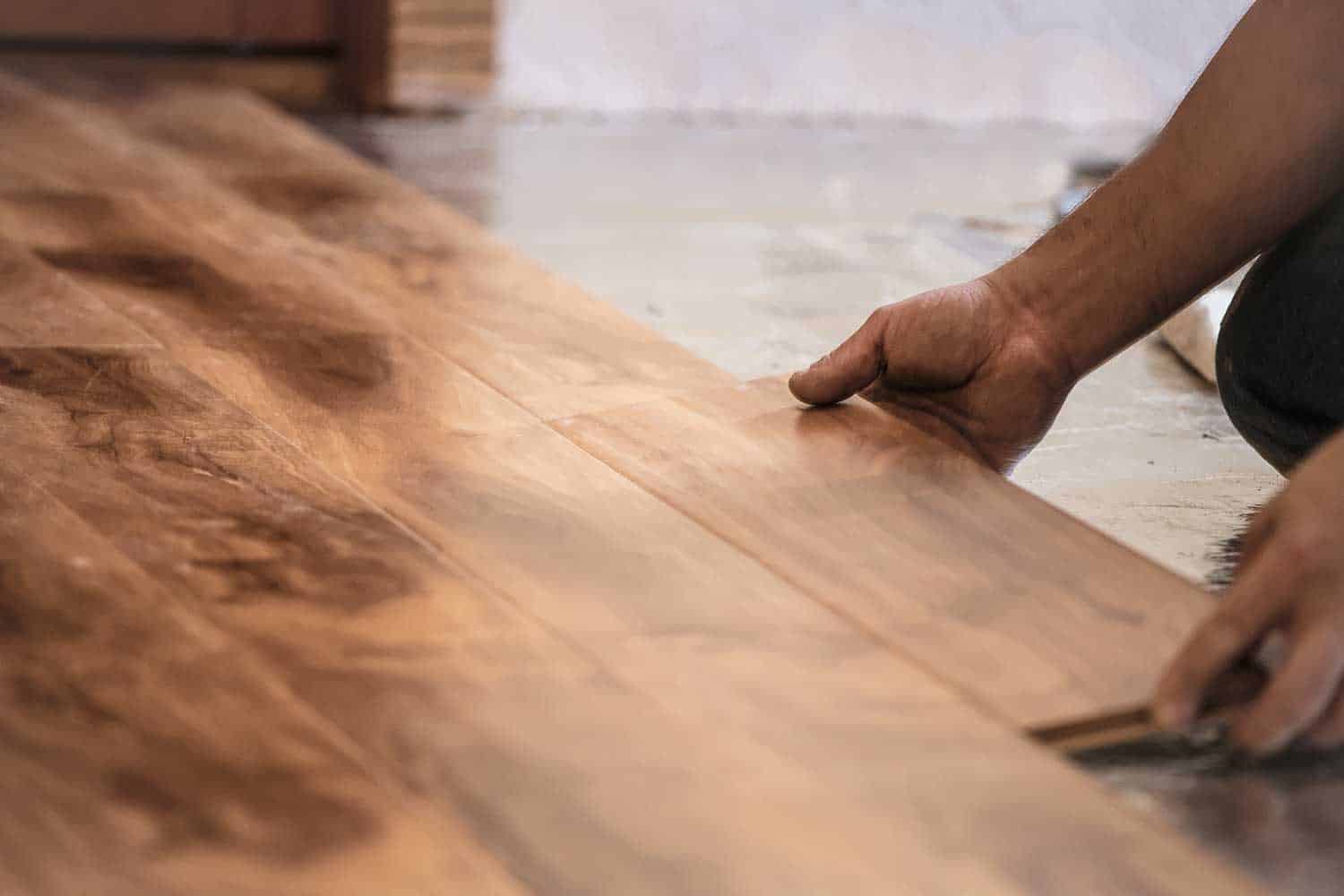
Using cold water to clean hardwood floors is the best possible method since hot water may damage the protective wax cover on the surface. Therefore, it is better to use room temperature water and a suitable cleaner that does not settle on the wooden surface.
Neither hot nor cold are great for hardwood floors because it reacts the same we do! If hardwood gets too cold, much like dry skin and chapped lips on us, it will dry out and shrink. It will result in cracks or gaps.
Tiles
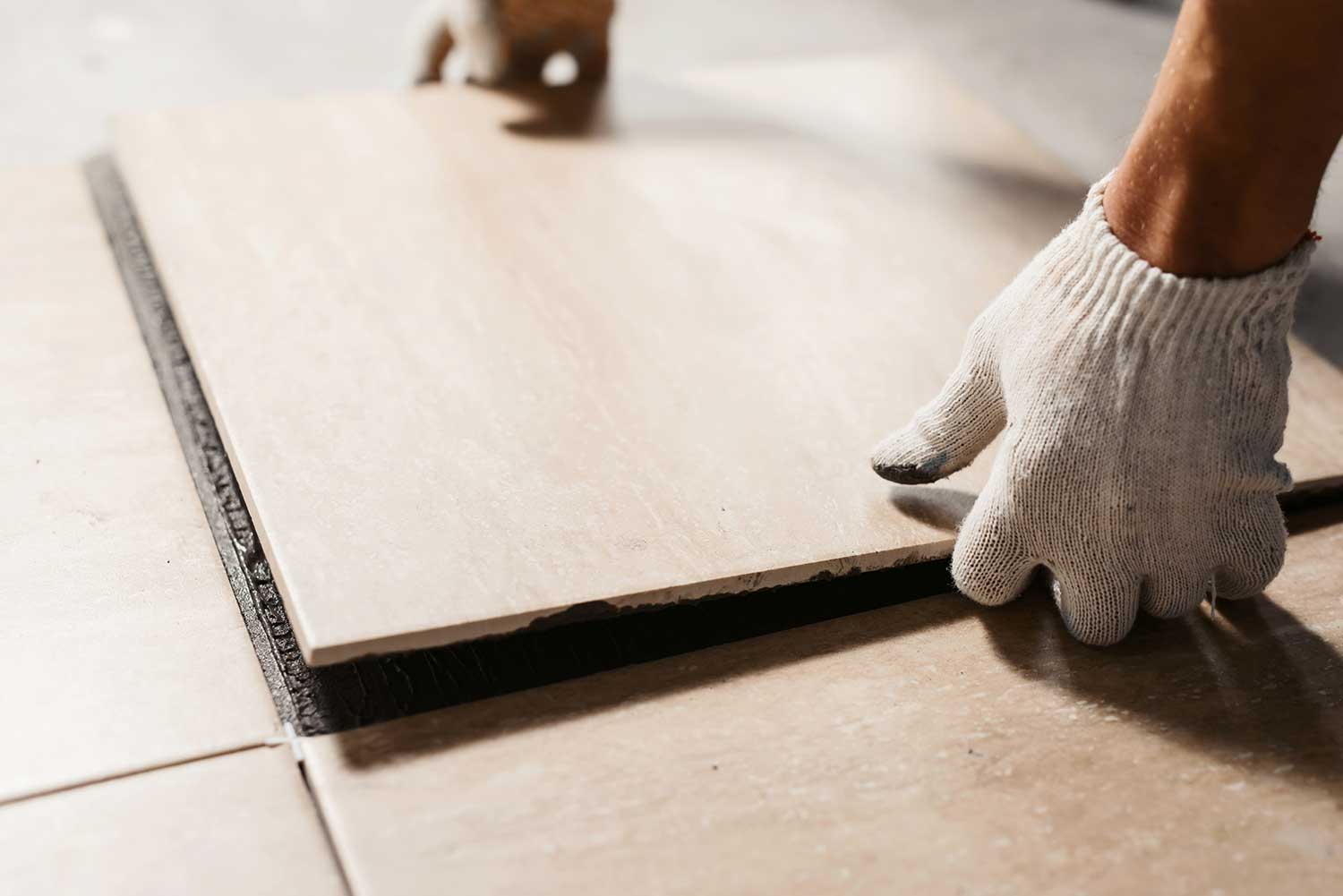
You can clean tiles with cold or hot water, depending upon their material. For example, you can mop marble tiles with hot water and a mix of regular detergent or even regular water at room temperature.
However, other tiles of more expensive materials such as porcelain or glass should use normal or lukewarm water and a suitable cleaner. This way, you can safeguard them from being pearl white to a dirty white with discoloration.
Vinyl
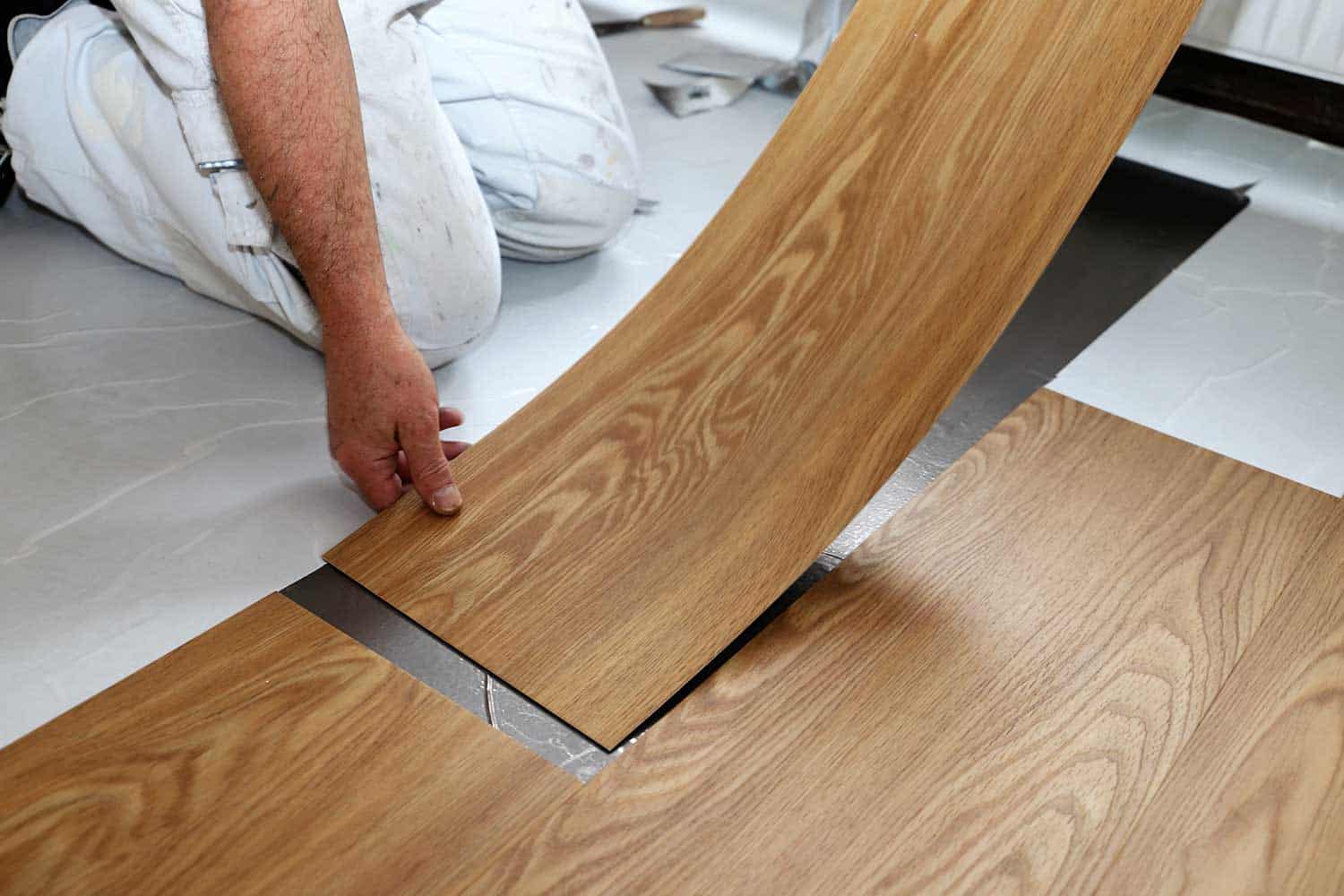
Vinyl floors should be cleaned with cold to room temperature water with a gentle swish of the mop. It can be cleaned without cleaners or detergents since it is susceptible to weathering and wear and tear by the enzymes present in cleaning chemicals.
Without the correct method, yellow stains and off-colored patches may form on the surface. In the worst-case scenarios, it may lead to cracks appearing on the surface.
Is It Better To Mop With Cold Water Or Hot Water?
It is better to mop with cold water to be on the safer side. As we mentioned earlier, cold water can give the same result as hot, with the additional benefit of preserving the flooring. Although a little bit slower, it offers the same results as hot water does while mopping one’s floor, all when it avoids inflicting damage to your floor. Therefore we would recommend using cold water for mopping your floor.
Should I Mop Or Vacuum First?
Vacuuming the floors should be the first step to get rid of the dust and other particles. Afterward, you can move on to mopping the floors. This way, you will have a cleaner and shinier floor.
What Is The Best Disinfectant Floor Cleaner?
The best floor disinfectant cleaner contains an appropriate amount of H2O2 (hydrogen peroxide) and is mildly acidic. In addition to this, it is made to be suitable for everyday use and is compatible with both hot and cold water. Many cleaners out in the market are compatible with hot and cold water.
The best disinfectant also depends on the type of flooring you have. To get the best results, look for cleaners that work for your specific flooring. Additionally, some cleaners might call for infrequent use. If you want something that you can use daily, you'll have to look for one that's fine for reoccurring use.
Lastly, you might find yourself taking a lot of cleaners home. Some may not work well with your floors. Otherwise, different flooring will require specific cleaners that work well with it. This way, you preserve and get a cleaner floor.
What Disinfectant Is Safe For Hardwood Floors?
A mixture of vinegar and water is perhaps the best and easiest way to disinfect hardwood. A small amount of vinegar can do wonders in a short amount of time. We recommend vinegar because it is better than most of the chemical-based products out there. Additionally, it is eco-friendly and saves a lot of money and time you may spend looking for the perfect disinfectant. It also keeps termites and other pests at bay that often tend to eat away at the wood.
Final Takeaway
We hope you found the information above insightful. Finding out how to maximize your cleaning potential will lead to better floors and a longer lifespan for them too! Cleaning floors might've seemed simple. However, as we can see, there's a lot to consider!
Before you go, do you have others questions lingering in your mind? How about if laminate flooring needs to acclimate? We have some answers! For more information, check out our post here.
Do you need help picking tiles for a kitchen floor? We have researched the six best types of tiles! For more information, check out our post here. Until next time!
